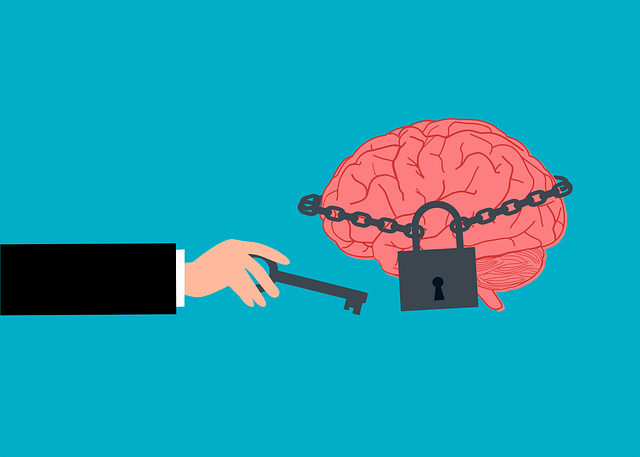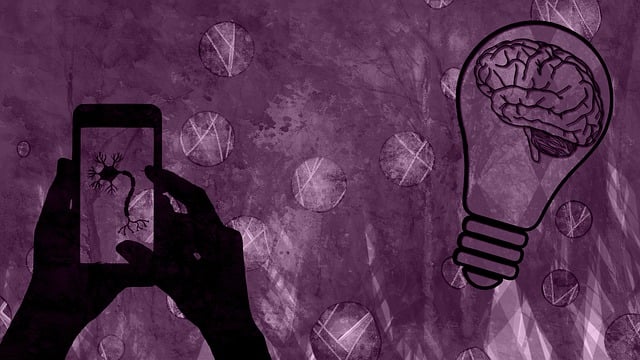Mental health is a complex issue hindered by stigma and societal barriers, which Parker Crisis Counseling Therapy (PCTC) aims to overcome through community outreach and education. They provide accessible resources, challenge negative thought patterns using cognitive-behavioral techniques, and offer practical coping strategies. Interactive learning methods like group discussions and role-playing are key to PCTM's success in fostering open conversations, knowledge retention, and early intervention. Evaluating program impact through surveys and focus groups is crucial for improving mental health education and creating resilient communities.
Mental health education programs play a pivotal role in fostering well-being and breaking down barriers. This article explores the design and impact of such initiatives, focusing on addressing common challenges and misconceptions surrounding mental health. We delve into the effectiveness of counseling therapy, using Parker Crisis Counseling as a case study. Key components for designing engaging programs are highlighted, along with strategies to measure their success. Through interactive learning activities, these programs aim to enhance understanding and promote positive mental health outcomes.
- Understanding Mental Health: Unveiling Common Challenges and Misconceptions
- The Role of Counseling Therapy: Parker Crisis Counseling as a Case Study
- Designing an Effective Education Program: Key Components and Strategies
- Implementing Interactive Learning: Engaging Participants Through Practical Activities
- Measuring Success and Impact: Evaluating the Efficacy of Mental Health Education Programs
Understanding Mental Health: Unveiling Common Challenges and Misconceptions

Mental health is a complex and often misunderstood aspect of human well-being. Many individuals struggle with mental health challenges, yet there persist numerous misconceptions and barriers that prevent people from seeking help. One of the primary obstacles is the stigma associated with mental illness, which can lead to feelings of shame and isolation. This stigma, often fueled by media portrayals and societal norms, contributes to a culture where mental health issues are either ignored or mismanaged.
At Parker Crisis Counseling Therapy, we recognize that unraveling these misconceptions is crucial for designing effective Mental Health Education Programs. By implementing Community Outreach Programs, we aim to foster open conversations about mental well-being. We address common challenges such as depression prevention by providing accessible resources and education tailored to diverse communities. Through these initiatives, we strive to create a supportive environment where individuals can learn, grow, and seek assistance without fear of judgment, ultimately improving overall community mental health.
The Role of Counseling Therapy: Parker Crisis Counseling as a Case Study

Counseling therapy plays a pivotal role in mental health education programs, offering practical strategies for managing and improving individuals’ overall well-being. One such evidence-based approach is Parker Crisis Counseling Therapy, which focuses on providing immediate support during moments of crisis. This therapeutic method equips individuals with coping mechanisms to navigate traumatic or stressful situations effectively. By integrating cognitive-behavioral techniques, Parker Crisis Counseling helps clients challenge negative thought patterns and develop healthier ways of processing emotions, ultimately fostering mental resilience.
As a case study, consider the impact of incorporating a Mental Wellness Podcast Series produced with this therapy’s principles in mind. Public awareness campaigns can be designed to educate listeners on recognizing signs of crisis and offering them tools to support their peers. Moreover, boosting confidence through interactive segments within the podcast series may encourage individuals to seek help and initiate conversations about mental health. This multi-faceted approach not only reaches a wide audience but also empowers people to take charge of their mental wellness, mirroring the core tenets of Parker Crisis Counseling Therapy.
Designing an Effective Education Program: Key Components and Strategies

Designing an effective mental health education program involves integrating key components that foster mental wellness and promote coping skills development. At its core, such a program should prioritize creating a safe and inclusive space where individuals feel comfortable discussing their experiences and learning practical strategies for navigating challenges. One proven approach is adopting the framework of Parker Crisis Counseling Therapy, which emphasizes active listening, validation, and problem-solving techniques. This involves training facilitators to identify emotional cues, build rapport, and guide participants through effective coping mechanisms tailored to individual needs.
Additionally, incorporating elements of emotional intelligence can significantly enhance program effectiveness. Encouraging self-awareness, empathy, and appropriate expression of emotions equips individuals with the tools to manage stress and maintain healthy relationships. Engaging activities such as role-playing scenarios, group discussions, and reflective exercises facilitate these learning objectives. By combining evidence-based practices, a supportive environment, and emotional intelligence training, programs like Parker Crisis Counseling Therapy can empower individuals to take charge of their mental health and cultivate resilience in the face of adversity.
Implementing Interactive Learning: Engaging Participants Through Practical Activities

Implementing interactive learning methods is a powerful strategy to engage participants and enhance the impact of mental health education programs, such as those offered by Parker Crisis Counseling Therapy. Practical activities allow individuals to actively participate in their learning, fostering a sense of involvement and ownership over their mental well-being. For instance, group discussions, role-playing scenarios, and creative exercises can facilitate open conversations about sensitive topics related to mental illness.
These interactive elements not only make the program more enjoyable but also contribute to better knowledge retention. By participating in activities like mood management techniques workshops or resilience-building exercises, individuals can apply learned strategies immediately, reinforcing their understanding of complex concepts. Such hands-on approaches help reduce the stigma associated with mental illness and encourage early intervention, ultimately promoting healthier communities.
Measuring Success and Impact: Evaluating the Efficacy of Mental Health Education Programs

Measuring success and evaluating the impact of mental health education programs is a crucial step in ensuring their effectiveness. It allows for an understanding of how these initiatives contribute to improving overall mental well-being, especially among young adults who are often at a higher risk. By implementing robust evaluation methods, such as pre-post tests, surveys, and focus groups, program designers can assess the short-term and long-term outcomes. This process involves tracking changes in participants’ knowledge, attitudes, and behaviors related to mental health.
For instance, the Parker Crisis Counseling Therapy (PCTC) model has shown promising results when evaluated using these methods. By focusing on evidence-based practices and tailored interventions, PCTC aims to foster self-care routine development for better mental health. Mental health education programs design that incorporates such evaluation strategies can identify successful components, areas for improvement, and ultimately contribute to the overall goal of increasing mental health awareness and resilience within communities.
Mental health education programs play a pivotal role in fostering awareness, challenging misconceptions, and providing practical tools for coping. By incorporating interactive learning strategies, such as those exemplified by the successful Parker Crisis Counseling Therapy model, we can create engaging environments that encourage open dialogue and skill development. Evaluating program impact through measurable outcomes ensures effectiveness and allows for continuous improvement, ultimately contributing to healthier individuals and communities.













